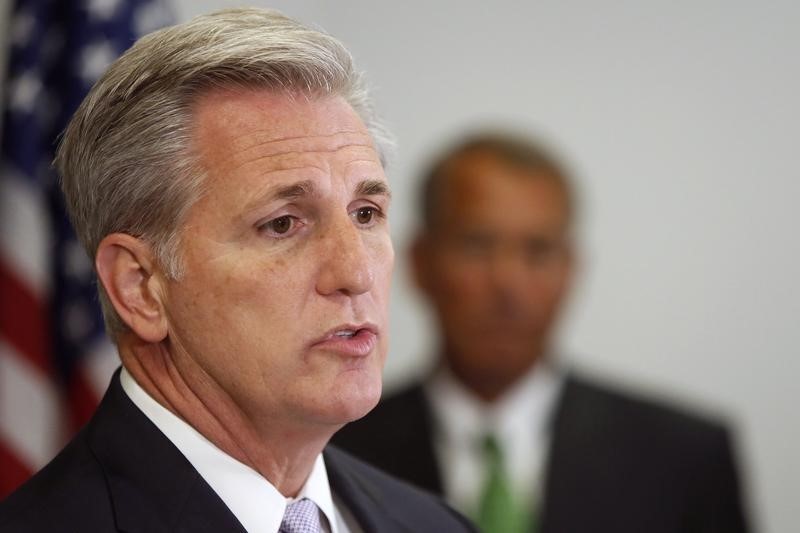By David Lawder
WASHINGTON (Reuters) - Republican House Majority Leader Kevin McCarthy said on Tuesday he believes passage of short-term legislation next month to extend transportation funding through the end of 2015 was more likely than a multi-year funding bill.
McCarthy told reporters that a short-term extension could buy more time for Congress to craft a longer-term transportation bill with a viable funding mechanism. Current federal funding for road, bridge and rail transit projects expires on May 31.
His comments are among the first from House Republican leaders acknowledging that crafting a multi-year transportation bill is too ambitious for the nine legislative days scheduled in May.
"The ultimate goal is to do a long term (bill), so five to seven years. The best way to get to a long-term one is to probably do a short term one first," McCarthy told a news briefing.
President Barack Obama earlier this year proposed a six-year, $478 billion transportation bill, but Congress has yet to agree on a long-term funding plan.
Although trucking and other industry groups have called for an increase in fuel taxes, unchanged since 1993 and insufficient to meet funding demands, McCarthy called a fuel tax increase "politically impossible."
He said a mechanism to reap revenues from the repatriation of U.S. corporate profits held overseas was a possibility, but this was tied to a broader tax reform plan, and would need more time to develop.
A short-term extension of transportation projects to the end of the year, on the other hand, would only cost about $8 billion to $10 billion, he said, adding that it would be easier for Congress to find offsetting savings for this amount.
McCarthy said, however, that he saw little scope for reaching a broader agreement with Democrats to ease "sequester" spending caps on domestic agencies because of Obama's insistence that any deal include tax or other revenue increases.
He said Republicans would be willing to increase spending on military and government agency budgets in exchange for reductions in spending on federal benefits programs. If that cannot happen, the House will write agency spending bills in line with the constraints enacted in 2011.

"We will abide by the law," McCarthy said.